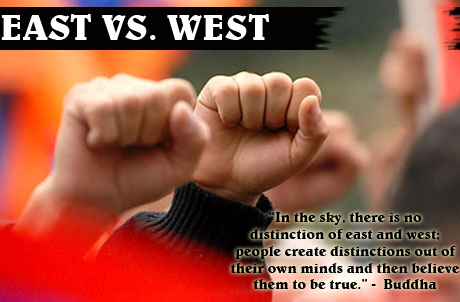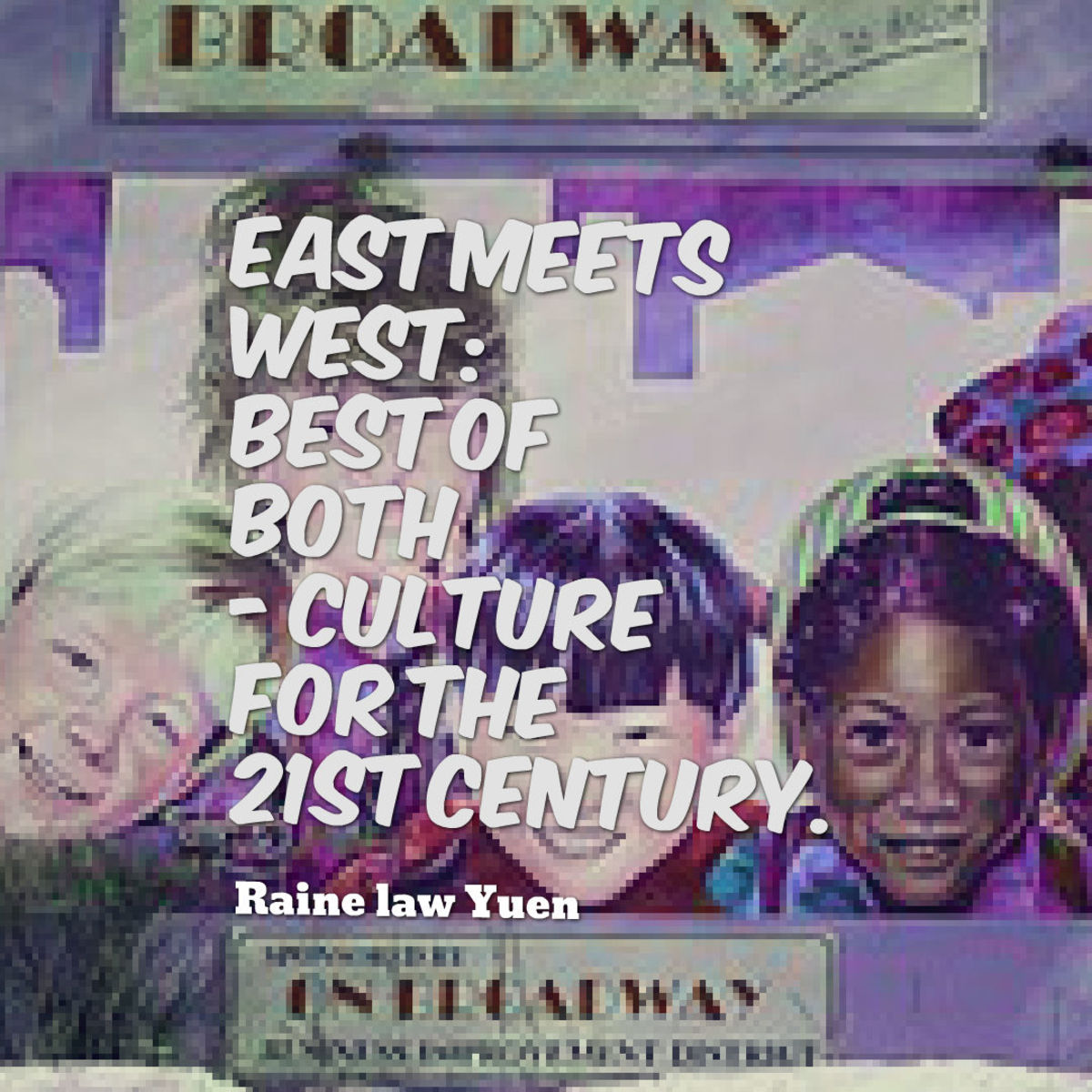Asia and the West in International Relations
Western academic discourse and literature has played a fundamental part in shaping worldwide perceptions of Asia as well the Middle East. With the dominance of the Enlightenment and Western modernist rationalism for hundreds of years, an image of Asia emerged which was biased and skewed towards supporting the perceived superiority of Western thinking, rationality and righteousness. Asia was portrayed as backwards, irrational and viewed through a lens of otherness and romanticism, a perspective that was propagated by Western intellectuals and colonisers. While people and academics of the world have attempted to transcend such views, they have ultimately formed the basis of Western thinking about Asia and undoubtedly remain entrenched in, and continue to influence the Western mind. If there is any chance that Asia will grasp a more equal footing with the West in international affairs and thus give some credence to the idea of the Asian century, then it is important that ideas formed about Asia, superficially or based on history, be overcome. This will help us imagine a more complex world in which we do not presume Western dominance over the East.

Education is a central part of how a more accurate understanding of Asia can be built. Specifically, Western governments have the task of selling the appeal of Asian studies, encouraging students to look through a different cultural lens, and therefore help to overcome enduring generalisations and assumptions about Asia. The rise of China and the Southeast Asian economies has sparked a growing interest in Asia, but this has been focused primarily on the realm of international business and economic interactions. While studying Asia and Asian languages is becoming more popular, whether your average Westerner would be interested or willing to gain a complex, unbiased and well-informed understanding of Asia is questionable. Students need to be taught to be open to studies of Asia and the outside world from an early age and Asian language education is an important part of this. Western governments therefore have to take initiative to encourage greater exposure to studies of Asia and its languages so that young people grow up challenging the preconceived dominance of Western discourses which shape their perspectives on the world. In the midst of the rise of Asia, it is the perfect time to start an education movement which allows future generations to have the tools necessary to navigate whatever this rise may bring.
Some academics may reject outright the rise of Asia and the possibility that Asian countries may climb past Western countries in terms of status and power in world affairs. While the rise of Asia has not been proven to be sustainable into the future, there is no doubt that Asian countries will share in a larger percentage of responsibility together with the West for our societies and in managing international relations. Stubborn rejection of this is ultimately counterproductive and detrimental to our thinking and our ability to overcome historically rooted notions of Western superiority over Asia. Western and Asian people and academics will always have uniquely different and culturally-specific ways of viewing the world, yet it is imperative that we learn to appreciate where our counterparts in business, politics, international relations and everyday life, whether Asian or Western, are coming from and what is shaping their views. It is not good enough to say that there is a divide between East and West and then give up, dismiss other cultures as illogical or simply rely on what history has supposedly told us about East-West relations, all people need to look further than this.

When Asia is seen as a threat by Western countries, this is a clear sign that some Westerners aim to hold onto the dominance of the past or even attempt to do everything possible to ensure it. The fact is that in any conflict involving Asian countries and the West the costs to human life and cross-cultural relations will outweigh any perceived benefits gained. It is therefore detrimental when some academics argue that Asian countries are in the process of a concerted plan of upheaval within the current international order. This not only paints Asian countries as the enemy or aggressor which negatively affects East-West relations, but is also an erroneous presumption about what Easterners may be thinking and what their intentions are or will be. It would be more beneficial for the West to look positively on Asia's rise as an opportunity for greater East-West cooperation. It brings with it the prospect for Asia to take on more of the international economic, political and diplomatic responsibilities usually taken on by Western countries like the US.
Positive steps also need to be taken to secure stronger diplomatic relations between countries such as the US and China. These two countries will undoubtedly lead the world forward and therefore the education of young people in these countries is key to overcoming enduring East-West divisions, antagonisms and grievances. Productive steps towards cooperation need to take the place of suspicion and antagonism, and positive actions and attitudes as well as openness on both sides have the potential for ensuring mutual benefit. In terms of popular understanding, Western peoples and governments need to accept the fact that Asian countries are increasingly in a position to lobby for more power and greater equality in the economic, political and military realms and will do so based on driving ideological and nationalistic needs. For example, the motivations and mindset driving China and its nuclear weapons program need to be more properly understood by Westerners for the sake of a peaceful international order. This is not to say that the onus is entirely on Western countries to reshape their views and assumptions. Asian countries like China and their people also need to engage with their histories of anti-Western attitudes, and reconcile their distrust and antagonism with Western countries as well as their nationalistic interests and ideals with the imperative of peace.

A continuing process of reconstituting Western discourse and thinking as well as the reshaping of Asian thinking to some extent is needed to transcend ingrained ideas, historical and current, which continually undermine the relationship between East and West. Educating young people to be open minded, question their thinking and query past ideas is the most important way in which to do this. In terms of international relations, a better understanding on both sides will ultimately help Western governments and people respond positively to the rising economic power of Asia as well as encourage Asian countries to go about securing more power in international affairs peacefully. Our education systems will ultimately play a critical part in determining to what extent the East-West divide can be bridged in the future.








